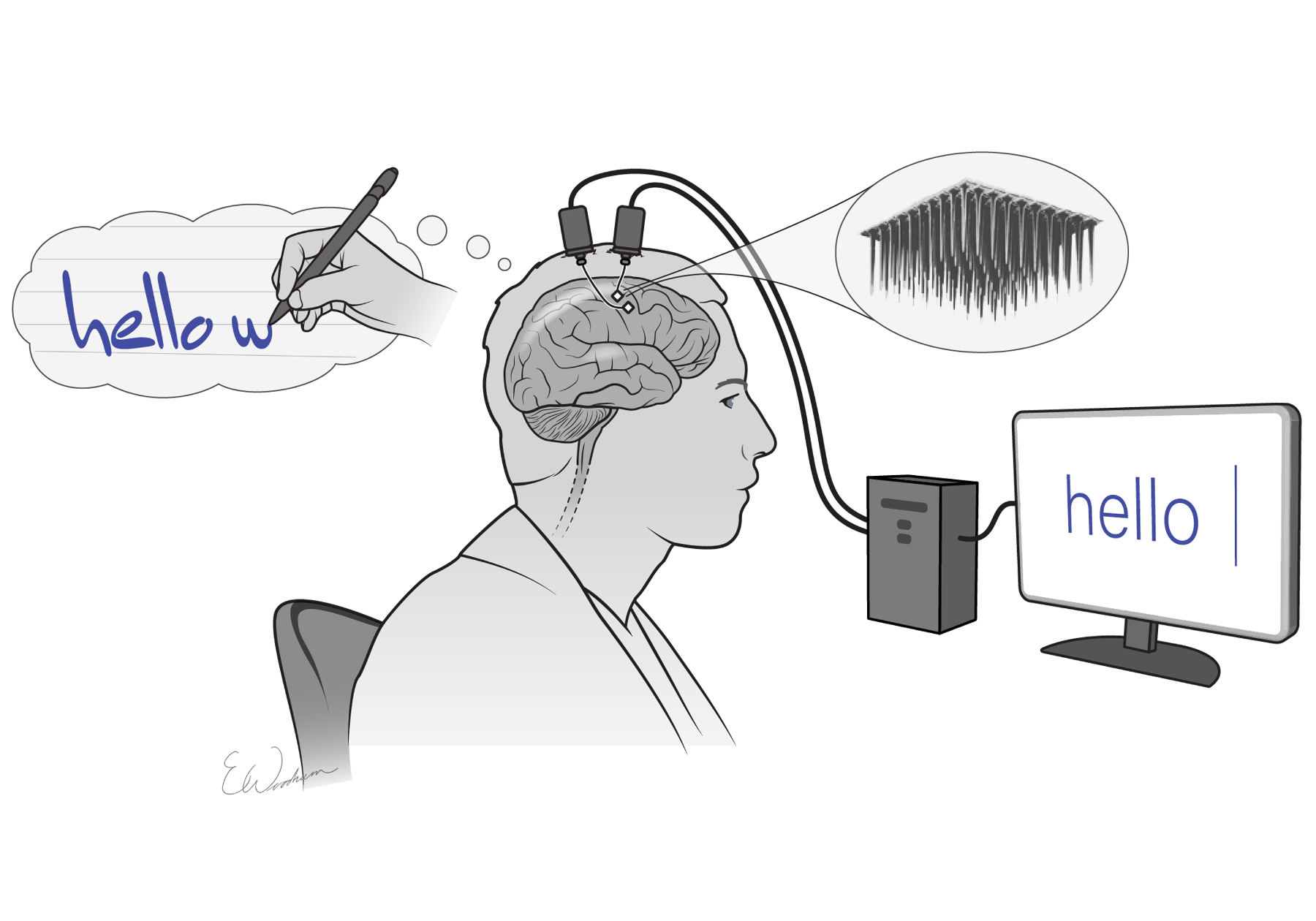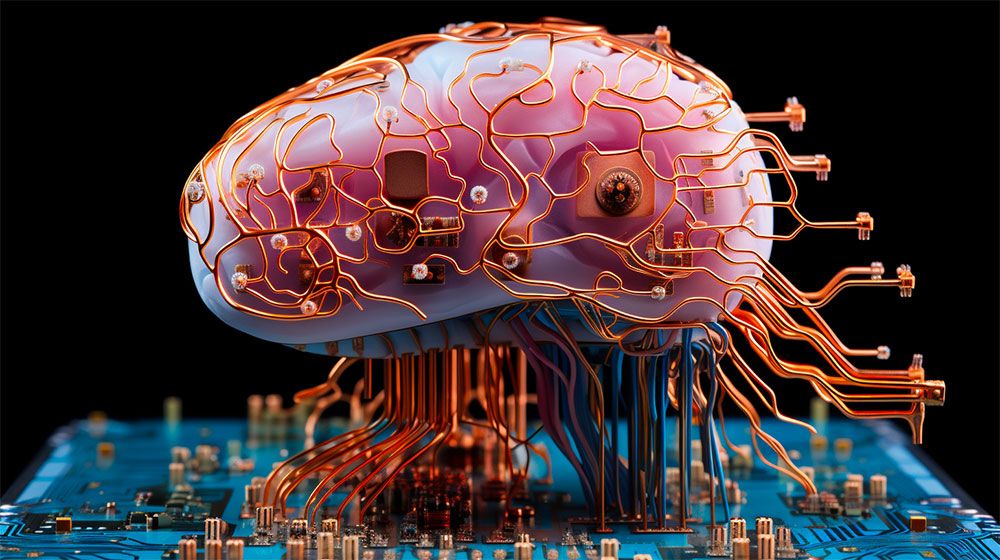
Brain-Computer Interfaces: The Next Frontier in Human-Tech Interaction
Explore the future of Brain-Computer Interfaces and their profound implications.Imagine a world where you can control your smart home, send messages, or even play video games using nothing but your thoughts. This isn't science fiction – it's the cutting-edge realm of Brain-Computer Interfaces (BCIs), a technology that's rapidly evolving from the pages of speculative novels into our everyday reality.
What Are Brain-Computer Interfaces?
At their core, BCIs are systems that create a direct communication pathway between the brain and an external device. They interpret the electrical signals produced by our brains and translate them into commands that computers or machines can understand and execute. It's like having a translator that speaks both "brain" and "computer" fluently.
There are several types of BCIs, ranging from non-invasive systems that use sensors placed on the scalp to invasive methods that involve surgically implanting electrodes directly into the brain. While invasive BCIs can provide more precise signals, they come with obvious risks and ethical considerations.
The Science Behind the Magic
The foundation of BCI technology lies in our understanding of how the brain communicates. Our brains are constantly buzzing with electrical activity as neurons fire, creating patterns that correspond to our thoughts, emotions, and actions. BCIs capture these signals, and then machine learning algorithms work to decipher and interpret them[1].
It's a bit like learning a new language – at first, the signals might seem like random noise, but with enough data and training, patterns emerge. The BCI learns to associate specific brain signal patterns with intended actions or thoughts.

Current Applications: From Medical Miracles to Mindfulness
The most compelling current applications of BCIs are in the medical field. For individuals with severe motor disabilities, BCIs offer a lifeline to communication and control. I've had the privilege of witnessing a patient with locked-in syndrome use a BCI to communicate with their family for the first time in years – it was a profoundly moving experience that highlighted the life-changing potential of this technology.
BCIs are also making waves in research, allowing neuroscientists to gain unprecedented insights into brain function. And in the consumer space, we're seeing the emergence of EEG headbands for meditation and focus training. I've tried one of these devices myself, and while it's not quite "mind reading," it's fascinating to see your brain activity visualized in real-time.
The Future is (Almost) Now
The potential future applications of BCIs are both exciting and slightly unnerving. Enhanced learning and memory, direct brain-to-brain communication, and seamless control of smart devices are all on the horizon[2]. Imagine studying a new language and having the vocabulary directly uploaded to your memory, or silently communicating with a colleague across a crowded room.
In the realm of augmented and virtual reality, BCIs could create truly immersive experiences by directly interpreting our intentions and emotions. It's not hard to envision a future where the line between our physical and digital worlds becomes increasingly blurred.

Promises and Perils
The promise of BCIs is immense, particularly for accessibility and medical applications. For individuals with paralysis or severe motor impairments, BCIs could restore independence and dramatically improve quality of life. In high-performance fields like surgery or piloting, BCIs could enhance precision and reaction times.
However, we must also grapple with significant challenges and ethical considerations. Technical hurdles like improving signal clarity and the longevity of implants need to be overcome. User adaptation and training can be time-consuming and frustrating. And then there are the thorny issues of mental privacy, potential misuse, and societal inequality if cognitive enhancement becomes widespread[3].
BCIs in the Public Imagination
Popular culture has long been fascinated with the idea of mind-machine interfaces. From the neural handshake in "Pacific Rim" to the direct downloads in "The Matrix," we've imagined both the wonders and horrors of connecting our brains to technology. While current BCIs are a far cry from these fictional depictions, they're advancing at a pace that might surprise many.
The Road Ahead
In the next 5-10 years, we're likely to see significant advancements in BCI technology. Non-invasive BCIs will become more precise and user-friendly, while invasive BCIs will continue to push the boundaries of what's possible in medical applications. Ongoing research into neuroplasticity and brain-machine learning could lead to BCIs that adapt more naturally to individual users.
Preparing for a BCI Future
As we move towards a world where BCIs are more commonplace, it's worth considering how this might change our society. Will traditional interfaces like keyboards become obsolete? How will education evolve if direct brain-to-computer learning becomes possible? These are questions we need to start grappling with now.
Conclusion
Brain-Computer Interfaces represent a fascinating convergence of neuroscience, computer science, and engineering. They have the potential to revolutionize how we interact with technology and even how we understand ourselves. As we stand on the brink of this new frontier, we must balance our excitement for the possibilities with careful consideration of the ethical implications.
The future of human-computer interaction is undoubtedly exciting, but it also raises profound questions about the nature of humanity itself. As we continue to blur the lines between mind and machine, we must ask ourselves: Where does the human end and the computer begin? And are we ready for the answer?
References
- https://www.reggiesingh.com/ffwd-blog/brain-computer-interfaces-bridging-minds-and-machines-but-at-what-cost
- https://en.wikipedia.org/wiki/Brain%E2%80%93computer_interface
- https://www.thedigitalspeaker.com/mind-bending-world-brain-computer-interfaces-humanity/
- https://www.ncbi.nlm.nih.gov/pmc/articles/PMC3497935/
Quantum Computing for Beginners: What It Means for Our Future?






Comments
No comments yet. Be the first to comment!
Leave a Comment